Patrick O'Shaughnessy's Blog, page 8
November 12, 2019
Daniel Ek – The Future of Audio – [Invest Like the Best, EP.147]

My guest this week is Daniel Ek, the founder and CEO of Spotify.
In my conversations with Daniel, I’ve found him to be one of the most
interesting and thoughtful business leaders in the world. You’ll see what I
mean as you listen to our conversation.
We talk about Spotify plenty, but what I so enjoy about Daniel is his way of
thinking in systems and frameworks. He is committed to evolution, innovation,
and growth for both himself and for Spotify and is on my short list of CEOs to
emulate.
This was one of my favorite conversations on the podcast, I hope you enjoy
it.
Show Notes
1:21 – (first question) – Management lessons from a Dubai chocolate maker
4:54 – Trends shaping the business landscape today: globalization,
automation, and digitation
7:51 – How he thinks about the vertical integration of his business and
scale
10:37 – Are companies doing a good job adjusting to the changes in the
global business landscape
14:44 – How does Spotify view scale moving forward
17:59 – What trends has he seen among creators as a result of the Spotify
platform
20:32 – The community benefit that has been created by the platform
23:47 – Intimacy of audio
25:31 – Creating an environment that continues to spur innovation
29:12 – Star vs constellation business strategy
32:21 – Measuring network health
35:12 – Spotify Originals and what his competition in the video market is
doing
39:36 – How podcasts play into the growth strategy
43:04 – How did he solve the problem of competing with free
47:21 – Is their strategy repeatable, going after fractured suppliers
49:02 – Role of the CEO in a startup
51:22 – Others who have taught him great business lessons
53:18 – Kindest thing anyone has done for Daniel
October 29, 2019
Chad Cascarilla – The Future of Blockchain and Financial Services – [Invest Like the Best, EP.145]
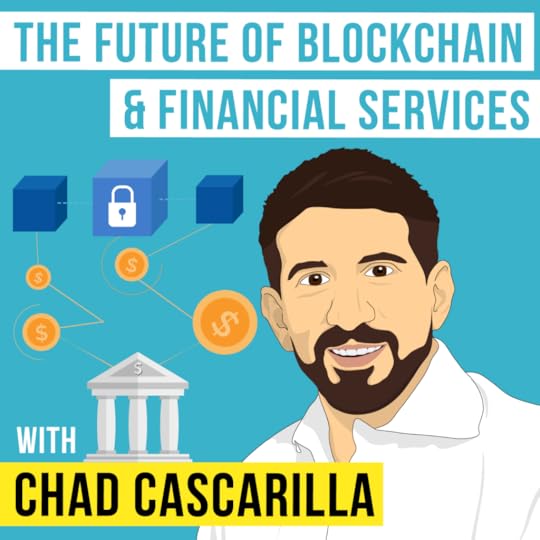
My guest today is Chad Cascarilla, the CEO and co-founder of Paxos, which
describes itself a a financial technology company “mobilizing assets at the
speed of the internet.“ Thanks to more than 20 years of investing and financial
services experience, Chad has a unique perspective on integrating blockchain
technology with traditional systems. He also has one of my favorite bitcoin
origin stories, which we explore.
Before Paxos, Charles co-founded institutional asset management complex Cedar
Hill Capital Partners in 2005 and its blockchain-focused venture capital
subsidiary, Liberty City Ventures (LCV).
Our conversation is less about crypto currencies and more about the history,
current state, and potential future states of our financial system. Please
enjoy.
For more episodes go to InvestorFieldGuide.com/podcast.
Sign up for the book club, where you’ll get a full investor curriculum and
then 3-4 suggestions every month at InvestorFieldGuide.com/bookclub.
Follow Patrick on Twitter at @patrick_oshag
Show Notes
1:32 – (First Question) – His work in the finance world before crypto’s
5:12 – Experience navigating the subprime mortgage trend and what it taught
him about blockchain
9:59 – The levers that matter in the financial services industry today vs
when he first started
14:07 – Open vs closed money in financial services
19:16 – How slowdowns are different in the modern era
23:06 – What would lead to a major winding down of global debt
27:09 – What would be his focus as a traditional investor
29:21 – How he first got involved with bitcoin
29:47 – Elliott Wave Newsletter
31:53 – His measured view of Bitcoin and living through the volatility of it
32:03 – Bitcoin: A Peer-to-Peer Electronic Cash
System
35:57 – Allocation of a portfolio which includes crypto
36:54 – His involvement and feelings on gold
37:56 – The formation of Paxos and the
problem it exists to solve
41:34 – How Paxos is impacting the space
44:12 – Advantages of a private blockchain
43:59 – What is Pax Gold and
how does it work
48:53 – Bad ways and situations to own gold
52:12 – Using a stable coin
56:00 – Biggest problem they are working on now
57:23 – What should people be paying attention to in the crypto currency
space
59:23 – Coindesk Research Archive
59:39 – Has the influx of interest in crypto helped in other spaces
1:02:11 – Other lessons people should learn from his career
1:04:53 – Kindest thing anyone has done for Chad
September 24, 2019
Bill Gurley – Direct Listing vs. IPOs – [Invest Like the Best, EP.144]

My guest this week is Bill Gurley, general partner at Benchmark
Capital. Our conversation is about one specific issue that has popped up as a
topic of interest in the investing community in recent months: the comparison
between bringing a company public through a traditional IPO vs. what’s know as
a direct listing.
This episode is very much in favor of direct listings instead of traditional IPOs. For those that want a good discussion of the IPO process and its upsides, check out episode 173 of the Exponent podcast with Ben Thompson, which I’ll link in the shownotes. Now please enjoy my very interesting conversation with Bill Gurley
Show Notes
Show Notes
1:40 – (First Question) – His view on the IPO process
6:00 – Will now be the turning point for IPO’s
6:58 – The engagement between a new company going public and
their counter party and the IPO process
13:56 – The math of capital costs
18:36 – Banks that underprice the IPO’s
21:03 – The psychology of IPO’s
23:32 – The pop in the IPO and the media
25:01 – The value that shareholders give vs VC’s
25:55 – The Green Shoots
28:35 – The lock up
31:58 – Direct listings vs IPO’s
36:07 – Spotify’s CEO
Reveals Why He’s Not Doing a Traditional IPO
38:41 – The capital raised in an IPO and diluting the
company
40:36 – Privilege access and buy side firms
43:51 – What will actually lead to changes in the IPO space
45:16 – Why he became so interested in the IPO space
August 20, 2019
Joe McLean – How to be a Pro’s Pro – [Invest Like the Best, EP.143]
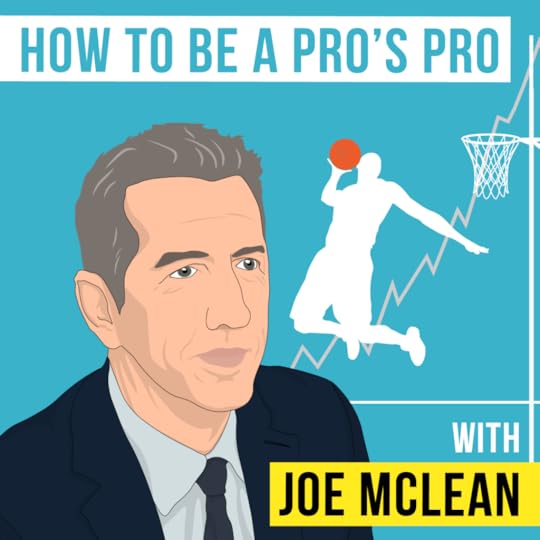
My guest this week is Joe McLean, the founder of Intersect
Capital, which provides financial advisory services to a variety of clients,
including a number of NBA players and other professional athletes.
What I loved about this conversation was the weaving of
sport, coaching, and finance into a cohesive whole. There’s so much to take
from this discussion—from the importance of service and low self-orientation,
to the impact of strict standards for who you work with, to common mistakes we
all tend to make with money.
Please enjoy my conversation with Joe McLean.
Show Notes
1:18 – (First Question) – His backstory and the combination
of athleticism and finance
2:43 – His time in Ireland
3:29 – Moving away from basketball and into finance
6:08 – What the Intersect business is today and his early
lessons
7:55 – Most important coach/mentor
8:59 – Where the name Intersect came from
10:22 – Setting high standards early on
12:35 – Biggest mistakes he saw in his early clients
14:04 – Developing his value proposition to clients
14:24 – Michael Kitces Podcast Episode
16:57 – Process when he’s working with a client signing a
new athletic contract
19:53 – The concept of a Pro’s Pro and Top
50 Reasons Professional Athletes Remain Wealthy
22:40 – Managing clients’ interest in creating businesses
off their brand
24:20 – The role media plays in athletes’ long-term
strategies
25:40 – Getting early clients into compliance with his
strategy
28:24 – Daily maintenance role he plays with clients
32:24 – What has impressed him most from his young clients
33:36 – What makes for a great coach
34:50 – The meaning of “all in” to Joe
35:54 – His assessment of the financial services industry
today
37:32 – Where his value in service came from
39:05 – Longer term vision for his business
40:33 – Unique ways he finds himself helping his clients
43:49 – Watching his client’s mentor the next generation
45:10 – Historical players and teams he personally admires
46:22 – Athletes and venture capital investing
47:38 – Who makes up his trust network
49:09 – What he’s most excited about for the future of the
business
49:46 – Kindest thing anyone has done for Joe
50:24 – Biggest impact a coach had on his life
August 13, 2019
Zack Kanter – All Things Business – [Invest Like the Best, EP.142]

This week’s guest is, Zack Kanter, the founder and CEO of the Stedi. Zack and I decided not to talk much about his business on this podcast and opted instead to explore more generally, so a bit of an introduction to what they do may be helpful here for some extra context. Stedi is a platform for exchanging and automating 300+ types of business-to-business transactions – transactions like purchase orders, invoices, etc. It’s a modern take on an archaic protocol called EDI – electronic data interchange, something I’d never even heard of until several months ago. Learning about EDI is a bit like finding out about the Matrix – every physical object you come across, from the food you ate for breakfast to the clothes you’re wearing and consumer electronics you use – anything with a barcode on it – was likely touched by EDI, often dozens of times before making it into your hands. Stedi is the first update to this messaging later in decades.
Our conversation in this podcast is about business in general, starting with Zack’s fascination with Walmart and Amazon. I should also not that my family is a recent investor in Stedi, and I’m thankful to have learned a great deal from him over the past few months. Please enjoy our conversation.
Show Notes
1:52 – (First Question) – Interest in Walmart and Amazon
4:02 – Sam Walton:
Made In America
4:49 – What from their success can be applied elsewhere
11:07– The idea of tempo with a business
17:17 – Ability for a business to expand laterally
24:33 – Magic of Amazon as a constitution
26:24 – The concept of the OODA loop
26:40 – Boyd:
The Fighter Pilot Who Changed the Art of War
31:51 – Orientation within software businesses
32:24 – The
Systems Bible: The Beginner’s Guide to Systems Large and Small
38:03 – Lessons in building software
38:37– Certain
to Win: The Strategy of John Boyd, Applied to Business
41:51 – Setting common vision for a company
44:14 – Changing dynamic of teams and how different size
teams can accomplish different things
48:00 – How leaders should think about build vs buy
51:07 – The different types of value propositions
53:07 – Utility for companies
57:31 – Concept of network health and the best question from
VCs
1:04:04 – Massive projects are less frequent in a world
where we can do a lot quickly
1:04:08 – Wait but Why
1:09:37 – Just in time vs just in case learning framework
1:11:55 – His favorite question
1:13:39 – Why is most commonly heard advice wrong
1:18:06 – Kindest thing anyone has done for Zack
August 6, 2019
Chris Bloomstran – What Makes a Quality Company – [Invest Like the Best, EP.141]

My guest this week is Chris Bloomstran, the president and chief investment officer of Semper Augustus Investments Group. He became famous in investing circles a few years back for his incredibly detailed investigations of Berkshire Hathaway. While we do cover Berkshire towards the end of the conversation, we spend most of our time talking about what makes for a quality business. I loved some of his angles on the current landscape, including our discussion of companies like Richemont and Disney which are actively taking distribution back in house. Please enjoy our conversation.
Show Notes
1:18 – (First Question) – Largest investing error
4:52 – Defining quality investor and their investment
strategy
11:48 – Incremental return on capital and other themes that
they focus on with investments
15:33 – Importance of unique business model
22:58 – Ownership of the customer relationship
28:06 – Bringing distribution back in house
29:55 – Doing something unique with owned distribution
32:40 – His thoughts on growth and value
32:42 – Chuck Akre podcast episode
37:12 – History of his interest in Berkshire Hathaway and he
characterizes the business
53:29 – How is Berkshire protected into the future
59:17 – Most important trends in adjustments
1:08:00 – Which sectors or industries would he focus on
1:10:02 – Most intriguing business he’s unlikely to own
1:11:44 – Kindest thing anyone has done for him
July 30, 2019
Brian Christian – How To Live With Computers – [Invest Like the Best, EP.140]
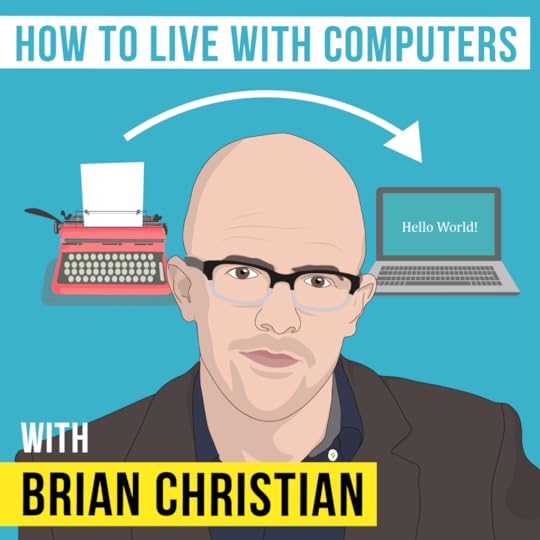
Show Notes
0:00 – (First Question) – Summarizing his collection of
interests that led to his three books
1:48 – Biggest questions in AI
2:32 – Defining AGI (Artificial General Intelligence) and
its history
4:07 – Computing
Machinery and Intelligence
6:43 – The idea of the most human human
8:48 – Tactics that have changed the most in learning to be
the most human human
14:59 –Tests for measuring AGI and updates made to them
19:01 – Concerns for once we have AGI
24:55 – Self-awareness as a threshold for AGI
30:47 – Skeptics’ take on AGI
36:03 – Advice for people building careers and how AGI will
impact work
36:21 –
Rise of the Machines and Robots
37:05 – Explore/Exploit trade off
43:46 – How explore/exploit applies to business concepts
47:55 – Impacts of AGI on the economy
51:29 – Highlights from his second book
56:28 – Kindest thing anyone has done for Brian
July 23, 2019
Eric Sorensen – How Quant Evolves – [Invest Like the Best, EP.139]
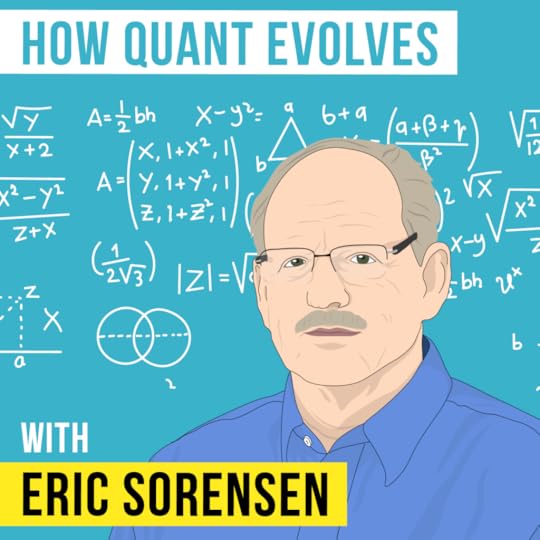
My guest this week is Eric Sorensen, the CEO of Panagora
asset management, which manages more than $46B for clients across a variety of
strategies.
Eric began his career serving in the Air Force as both a
pilot and instructor in high performance jet aircraft. He then accumulated 40
years of quantitative research and investment experience, with a PhD along the
way.
Please enjoy our conversation on the changing landscape of
quantitative investment strategies.
Show Notes
1:15 – (First Question) – His background in the Air Force
1:23 – Boyd:
The Fighter Pilot Who Changed the Art of War
3:18 – Training people on high performance machines
4:47 – Traits that made for better pilots
5:51 – The evolution of quantitative equity research and its
stages
7:56 – How his research led to becoming a practitioner
9:10 – The early feature sets in his research
10:44 – Tradeoffs in the spectrum of interpretability
12:08 – Early days of his practitioner career
13:24 – Risk Premia and the 5 C’s
14:28 – Quantitative
Equity Portfolio Management: Modern Techniques and Applications
17:13 – Applying the 5 C’s to value investing
18:38 – Knowing when a strategy/signal is broken
21:24 – What does this strategy plan mean for his firm today
24:56 – Mixing expert systems and portfolio construction
30:07 – Natural language processing
32:00 – The cultivating the power and creativity to ask good
questions
35:13 – The concept of a research graveyard
37:45 – State of risk premia today
40:04 – Active equity process
46:37 – Frontiers of research that he’s excited about
48:53 – Safe havens for non-quantitative investors
52:16– Advice for young quants
54:36 – Quants on the buy side that he admires
55:41 – Kindest thing anyone has done for him
Eric Sorenson – How Quant Evolves – [Invest Like the Best, EP.139]

My guest this week is Eric Sorensen, the CEO of Panagora
asset management, which manages more than $46B for clients across a variety of
strategies.
Eric began his career serving in the Air Force as both a
pilot and instructor in high performance jet aircraft. He then accumulated 40
years of quantitative research and investment experience, with a PhD along the
way.
Please enjoy our conversation on the changing landscape of
quantitative investment strategies.
Show Notes
1:15 – (First Question) – His background in the Air Force
1:23 – Boyd:
The Fighter Pilot Who Changed the Art of War
3:18 – Training people on high performance machines
4:47 – Traits that made for better pilots
5:51 – The evolution of quantitative equity research and its
stages
7:56 – How his research led to becoming a practitioner
9:10 – The early feature sets in his research
10:44 – Tradeoffs in the spectrum of interpretability
12:08 – Early days of his practitioner career
13:24 – Risk Premia and the 5 C’s
14:28 – Quantitative
Equity Portfolio Management: Modern Techniques and Applications
17:13 – Applying the 5 C’s to value investing
18:38 – Knowing when a strategy/signal is broken
21:24 – What does this strategy plan mean for his firm today
24:56 – Mixing expert systems and portfolio construction
30:07 – Natural language processing
32:00 – The cultivating the power and creativity to ask good
questions
35:13 – The concept of a research graveyard
37:45 – State of risk premia today
40:04 – Active equity process
46:37 – Frontiers of research that he’s excited about
48:53 – Safe havens for non-quantitative investors
52:16– Advice for young quants
54:36 – Quants on the buy side that he admires
55:41 – Kindest thing anyone has done for him
July 16, 2019
Jane McGonigal – How Games Make Life Better – [Invest Like the Best, EP.138]
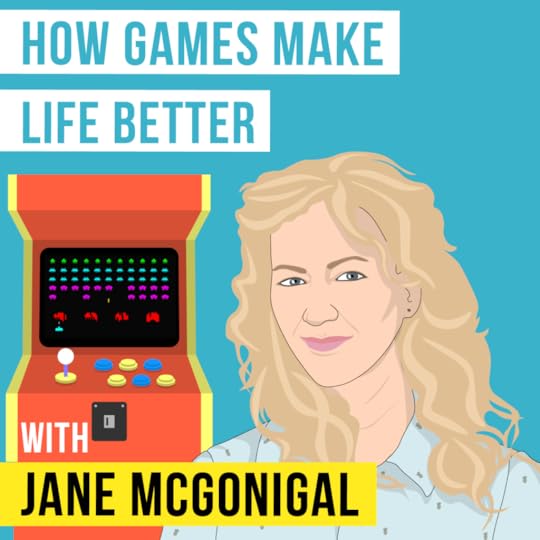
Jane McGonigal, PhD is a world-renowned designer of
alternate reality games — or, games that are designed to improve real lives and
solve real problems.
She is the Author of Reality is Broken: Why Games Make Us
Better and How They Can Change the World and is the inventor and
co-founder of SuperBetter, a game that has helped nearly a million
players tackle real-life health challenges such as depression, anxiety, chronic
pain, and traumatic brain injury.
Our conversation is about how to design useful games, how
games effect us and our kids, and what the future might hold. Please enjoy.
For more episodes go to InvestorFieldGuide.com/podcast.
Sign up for the book club, where you’ll get a full investor
curriculum and then 3-4 suggestions every month at InvestorFieldGuide.com/bookclub.
Follow Patrick on Twitter at @patrick_oshag
Show Notes
1:22 – (First Question) – Her take on the history of gaming
and studying the players themselves
3:44 – Where her passion for gaming really started
4:55 – Her take on flow states
7:47 – Kids and gaming
10:32 – Advice for parents when it comes to the role of
games
13:53 – Types of games that develop the right skills for
kids
16:20 – Four things all games share in common
16:23 – Reality
Is Broken: Why Games Make Us Better and How They Can Change the World
20:50 – Her take on Carse’s theory about infinite gaming
21:04 – Finite
and Infinite Games
26:28 – How to understand gaming culture if you’ve never
played a game before
28:28 – Amazon and gaming
31:18 – How fun makes anything more enjoyable
34:55 – How game designers calibrate feedback loops
39:14 – The good and bad of gamifying life
45:01 – What is the superbetter
app
52:43 – Why powerups and bad guys are so important in games
57:03 – Secret identity
59:04 – Playing with boundaries
1:00:36 – Most worried about in the gaming world, and most
exited about
1:07:32 – Kindest thing anyone has done for Jane



